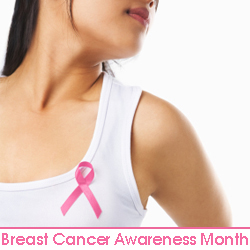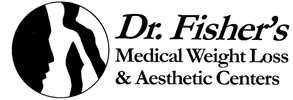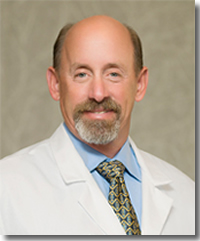 Diet, Obesity and Breast Cancer: Tips on How to Reduce Your Risk Diet, Obesity and Breast Cancer: Tips on How to Reduce Your Risk
Next to smoking, being overweight or obese has been found to be the most preventable major risk to developing cancer. Research conducted by the American Cancer Institute showed that obesity significantly increased the risk of cancer developing in the colon, ovaries, breasts, uterus, kidneys, pancreas and gallbladder.
Furthermore, research shows women who are obese after menopause have a 50% higher relative risk of developing breast cancer than those who maintain a healthy weight.
Unfortunately, the typical western diet of fatty meats, refined flours, oils and sugars that leads to obesity can not only have a negative effect on our appearance but more importantly, it may actually act to stimulate the growth of cancer cells.
The good news it's never too late to improve your health through healthful eating and adopting a more healthy lifestyle. In fact, even small losses in body weight and conscious changes in our diet such as adding more fresh fruit and vegetables and whole grains to our daily meals has been shown to have immediate, positive health effects. Not to mention, your risk of cancer may be lowered.
In celebration of Breast Cancer Awareness Month, here are 6 steps you can take to make an immediate improvement in your health while decreasing your cancer risk. If you'd like to schedule a consultation with Dr. Jon Fisher call his Philadelphia Weight Loss Clinic on City Line Ave., Tabor Ave. or one of his other Philadelphia based Weight Loss Clinics and HCG Diet Centers in South Philly or Feasterville, at (215) 987-4592 or contact Body By Fisher Now online today.
How Does Obesity increase Your Cancer Risk?
One reason obesity may raise cancer risk is because fat cells produce a form of estrogen called estradiol which promotes rapid division of cells, increasing chances of a random genetic error while cells are replicating, which can lead to cancer. Since high estrogen levels are known to highly correlate with higher breast cancer risk, and fat efficiently stores estrogen, then lowering fat lowers the risk.
In addition, fat centered around the abdomen may increase insulin and insulin-like growth factors in the blood, which may increase cancer risk.
But it isn't the consumption of fat that causes higher body fat, per se. Eating more calories than are used causes the body to store the excess in fat, leading to a higher body fat percentage. And, fat contains more calories per unit weight than other foods. The route is indirect.
Furthermore, the evidence is strong that foods high in antioxidants do help reduce the chances of contracting breast cancer.
Free radicals in the blood stream are ionized atoms that are known to be able to harm cells. Antioxidants reduce the amount of free radicals by combining with them, rendering them harmless.
6 Cancer Fighting Tips:
1. Maintain a Healthy Weight: Begin by having your Body Mass Index (BMI) checked. According to the Centers for Disease Control and Prevention, 60% of Americans are overweight, defined as having a BMI (a ratio of height to weight) over 25. Of those, nearly half (27%) qualify as obese, with a body mass index of 30 or more. Click here to check your BMI now.
2. Be Smart About the Amount of Calories You Consume: Follow the daily recommended calories to maintain a healthy weight. If you are not sure what that would be for your height and weight, check with your doctor. Remember if you eat and drink more calories than your body requires you will put on weight.
3. Fight Cancer with Antioxidant Rich Foods: More than a third of all cancers could be prevented by changes in diet. As mentioned earlier, one of the most important things you can do to reduce your risk is lose excess weight - and one of the best ways to lose weight is through a filling, fiber-rich diet including plenty of fruits and vegetables. These foods are packed with antioxidants and other compounds that protect your DNA and fight free radical damage. Since these substances work synergistically, it's best to eat a variety of fruits and vegetables rather than relying on one particular produce item to serve as a magic bullet against disease. That said, recent studies have uncovered specific benefits in foods such as Tomatoes, Broccoli sprouts, Berries, Soybeans, Tea, Pumpkin, Spinach, Garlic, Pineapple and Apples. Consider making them a part of your new healthy diet.
4. Eat more fish and lean protein with every meal. Fish is a food that contains omega-3 fatty acids. These are healthy fats that work to protect the heart and also reduce inflammation in the body. These fatty acids along with other vitamins help to protect against cancer. Protein is not only a necessary building block for lean muscle development but it also provides a longer sense of fullness. great protein sources include: soybeans, lean white meat (chicken and turkey) and ocean fish.
5. Get Moving: Building physical activity into your daily routine can make a difference in your health. If you can't get to the gym try walking just 30 minutes.
6. Join a Weight Loss Program: Losing weight and getting in shape is not easy. Structured groups provide the direction, support and motivation needed to help you take the weight off and keep it off. In fact, studies show that participants who had the support of weight loss coaching lost more weight than those who didn't.
Medical Weight Loss Center in Philadelphia Offers Diet Plans for Women that Work Including the HCG Diet:
At our Medical Weight Loss Center, we assure that you are given the appropriate dosage and accompanying diet plan that is tailored for your current weight, health and circumstances. We monitor your progress and help you successfully navigate the changes as your body adjusts to the fat and weight loss. We know how effective HCG can be in helping you meet your weight loss, health and wellness goals. And we want to help you get there.
If you are looking for a reputable Philadelphia Weight Loss Clinic that also offers the tools and support to help you reach your weight loss goals, call Dr. Fisher, the Philadelphia Diet Doctor, at (215) 987-4592 to schedule an appointment today. To schedule an appointment at one of his Philadelphia Medical Weight Loss Centers using their online appointment scheduler, click here now.
|














